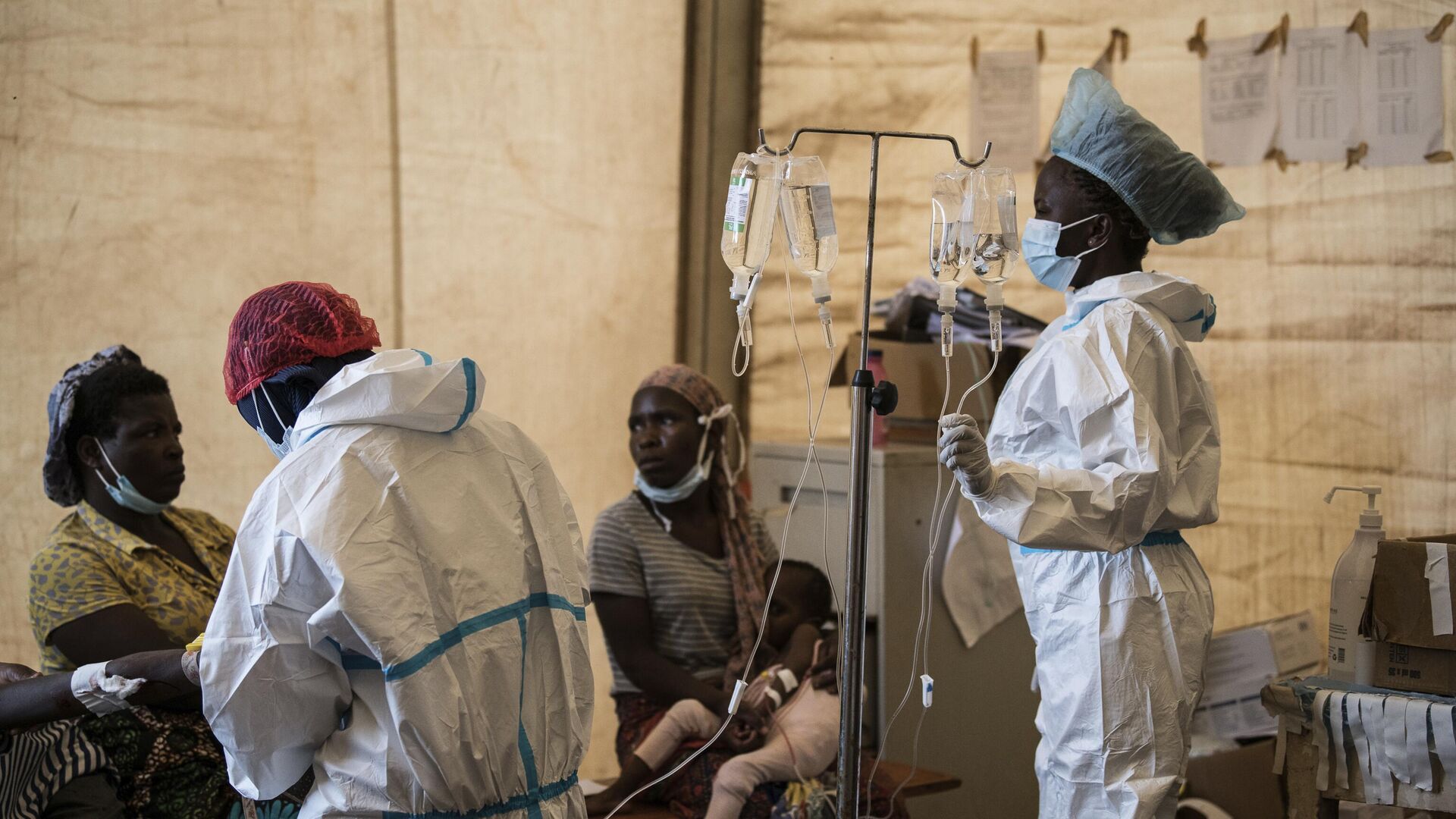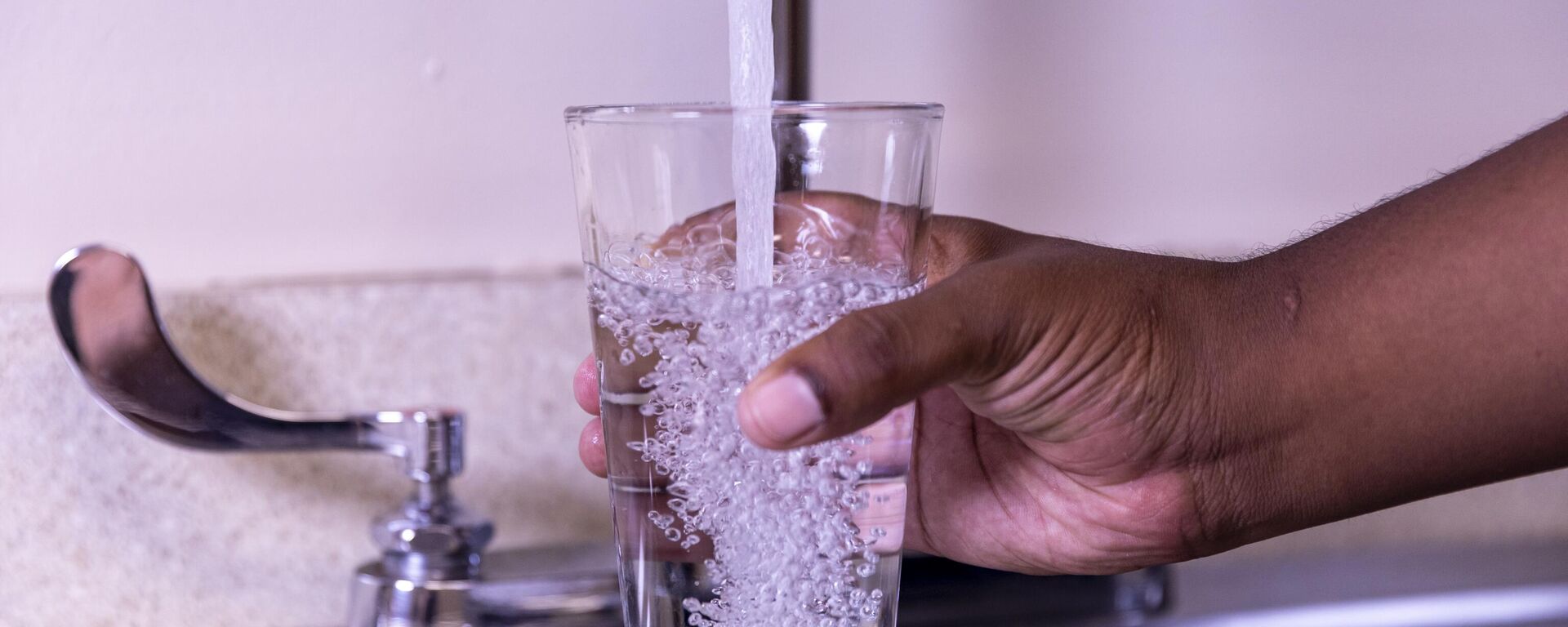https://en.sputniknews.africa/20240407/africa-reportedly-bears-annual-cost-of-84-billion-due-to-hospital-infections-1065950775.html
Africa Reportedly Bears Annual Cost of $8.4 Billion Due to Hospital Infections
Africa Reportedly Bears Annual Cost of $8.4 Billion Due to Hospital Infections
Sputnik Africa
A staggering 411 million Africans don't have access to safe drinking water, 779 million don't have proper sanitation, and 839 million lack access to basic... 07.04.2024, Sputnik Africa
2024-04-07T14:20+0200
2024-04-07T14:20+0200
2024-04-07T14:42+0200
sub-saharan africa
world bank
infection
disease
death
malawi
kenya
ghana
african development bank (afdb)
sierra leone
https://cdn1.img.sputniknews.africa/img/07e7/05/16/1059403083_0:160:3073:1888_1920x0_80_0_0_1bfdcff83288c9bd1317f0b3e578065b.jpg
Joint research by the international non-governmental organization WaterAid and the World Bank estimated that sub-Saharan Africa loses up to $8.4 billion annually and hundreds of thousands of lives due to infections acquired in hospitals, the Western media reported on Sunday.Clean water, better restrooms, and handwashing facilities could prevent at least half of the cases, according to the paper. Notably, pediatric departments, neonatal wards, and intensive care units had the highest rates of contamination.Thus, African countries incur an average cost of 1.1% of their GDP and 4.5% of their health budgets due to healthcare-associated infections, which include diseases like sepsis and pneumonia, the media reported.The country that was most severely affected was Malawi, which has to spend 10.9% of its yearly health expenditure and 2.9% of its GDP to treat the infections, the report said.About a third of African countries are affected by water scarcity, the African Development Bank (AfDB) reported. Globally, health care facilities in low- and middle-income countries lack improved water sources in 38% of cases, proper sanitation in 19%, and soap and water for handwashing in 35%, according to the World Health Organization.However, international and regional organizations are trying to help Africa overcome this problem. At the beginning of February, the AfDB named Kenya, Ghana, Zambia, and Sierra Leone as the first countries to launch the African Urban Sanitation Investment Initiative project in 2024, which aims to enhance the access to clean water for the poverty-stricken people, according to the media outlets.
https://en.sputniknews.africa/20240204/these-four-african-countries-reportedly-listed-for-afdbs-water-sanitation-initiative-1064928658.html
malawi
kenya
ghana
sierra leone
southern africa
east africa
west africa
Sputnik Africa
feedback@sputniknews.com
+74956456601
MIA „Rossiya Segodnya“
2024
Christina Glazkova
https://cdn1.img.sputniknews.africa/img/07e7/0b/07/1063380906_0:0:673:674_100x100_80_0_0_79628b4d0cd9f29291a57aa13bbf9e7a.jpg
Christina Glazkova
https://cdn1.img.sputniknews.africa/img/07e7/0b/07/1063380906_0:0:673:674_100x100_80_0_0_79628b4d0cd9f29291a57aa13bbf9e7a.jpg
News
en_EN
Sputnik Africa
feedback@sputniknews.com
+74956456601
MIA „Rossiya Segodnya“
Sputnik Africa
feedback@sputniknews.com
+74956456601
MIA „Rossiya Segodnya“
Christina Glazkova
https://cdn1.img.sputniknews.africa/img/07e7/0b/07/1063380906_0:0:673:674_100x100_80_0_0_79628b4d0cd9f29291a57aa13bbf9e7a.jpg
world bank, infection, disease, death, malawi, kenya, ghana, african development bank (afdb), sierra leone, health, healthcare, water security, water resources, southern africa, east africa, west africa
world bank, infection, disease, death, malawi, kenya, ghana, african development bank (afdb), sierra leone, health, healthcare, water security, water resources, southern africa, east africa, west africa
Africa Reportedly Bears Annual Cost of $8.4 Billion Due to Hospital Infections
14:20 07.04.2024 (Updated: 14:42 07.04.2024) Christina Glazkova
Writer / Editor
A staggering 411 million Africans don't have access to safe drinking water, 779 million don't have proper sanitation, and 839 million lack access to basic hygiene, as per the 2022 WHO/UNICEF report. Contaminated water can spread diseases like diarrhea (of which about 502,000 people die yearly), cholera, dysentery, typhoid, and polio.
Joint research by the international non-governmental organization WaterAid and the World
Bank estimated that sub-Saharan Africa loses up to $8.4 billion annually and hundreds of thousands of lives due to infections acquired in hospitals, the Western media reported on Sunday.
Clean water, better restrooms, and handwashing facilities could prevent at least half of the cases, according to the paper. Notably, pediatric departments, neonatal wards, and intensive care units had the highest rates of contamination.
Thus, African countries incur an average cost of 1.1% of their GDP and 4.5% of their health budgets due to healthcare-associated infections, which include diseases like sepsis and
pneumonia, the media reported.
“This is a cost that will only increase as a greater share of these infections become resistant to antibiotics,” WaterAid said in a statement, as cited by the media. “Antibiotic resistance is a growing global health emergency, contributing to nearly five million deaths every year.”
The country that was most severely affected was
Malawi, which has to spend 10.9% of its yearly health expenditure and 2.9% of its GDP to treat the infections, the report said.
About a third of African countries are affected by water scarcity, the African Development Bank (AfDB)
reported. Globally, health care facilities in low- and middle-income countries lack improved water sources in 38% of cases, proper sanitation in 19%, and soap and water for handwashing in 35%, according to the
World Health Organization.
However, international and regional organizations are trying to help Africa overcome this problem. At the beginning of February, the AfDB named Kenya, Ghana, Zambia, and
Sierra Leone as the first countries to launch the African Urban Sanitation Investment Initiative project in 2024, which aims to enhance the access to clean water for the poverty-stricken people, according to the media outlets.



